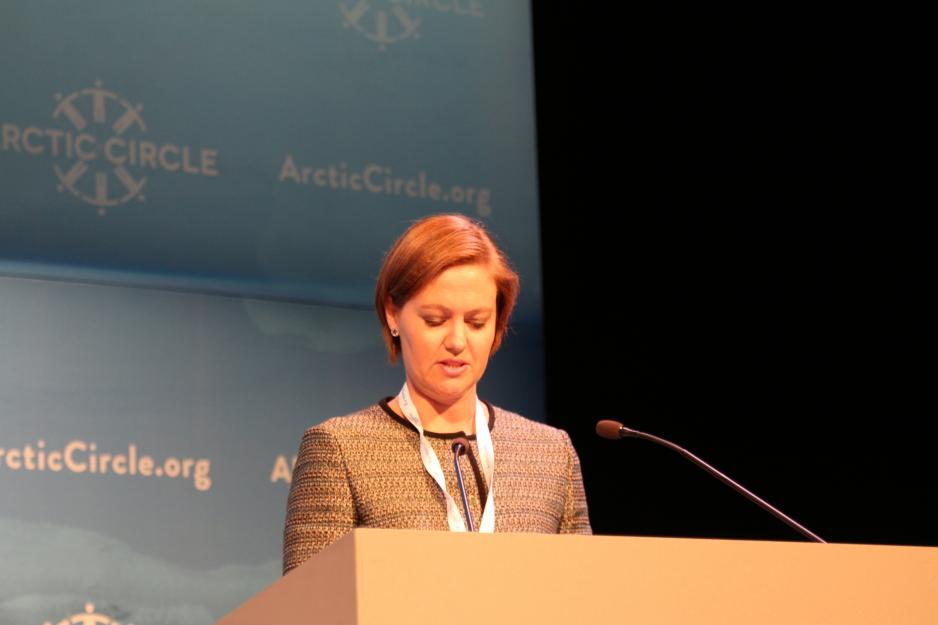Argues that NRCC sends out unfortunate signals

- I appreciate the Norwegian-Russian Chamber of Commerce’s efforts to promote trade and cooperation with Russia. However, its recent letter begs a series of questions about the NRCC’s view on the current restrictive measures.
- In a time where we have to stand up clearly for international rule of law, this sends out an unfortunate signal.
That is what State Secretary Marit Berger Røsland of the Norwegian Ministry of Foreign Affairs says in response to Liv Monica Stubholt’s letter in Norwegian daily Aftenposten recently, in which she reflects on the practical results of how the current sanctions against Russia work. Stubholt is Chairperson of the Norwegian-Russian Chamber of Commerce.
The NRCC will again encourage both countries to engage diplomatically in order to build a foundation for decreasing the sanctions, Stubholt writes.
The last few years have seen a significant decrease in Norwegian-Russian trade.
- Norwegian exports to Russia has decreased 74.5 percent measured in Norwegian kroner, and 82 percent measured in US Dollars for the period 2013-2016, Russian Ambassador to Norway Teimuraz O. Ramishvili said in this interview.
Russia wants to restore normal relations to Norway.
In her response to NRCC Chairperson Stubholt, she asks whether the Chamber of Commerce thinks that Norway and Russia carry an equal responsibility for creating a foundation for reducing the restrictive measures.
- There is good reason for reminding about why those restrictive measures have been introduced and what it will take for them to be reduced. Norway joins a broad group of allies and partners in their reactions to Russia’s breaking public international law in the Ukraine. The restrictive measures concern the Ukraine’s territorial integrity, sovereignty, independence and stability. The core is public international law. Norway has condemned Russia’s illegal annexation of Crimea and Sevastopol. Russia’s behavior in Eastern Ukraine still gives reason to deep concerns.
Today, Norway has sanctions and restrictive measures in place against 25 different countries.
- Targeted economic sanctions and restrictions have become an all the more common tool when the international society handles threats against peace, security and the rule of law. This is vital for a small country with an open economy, Røsland says.
